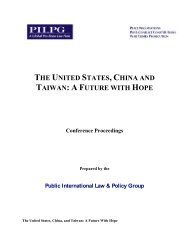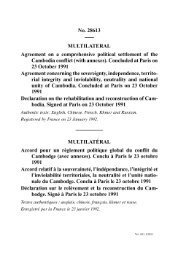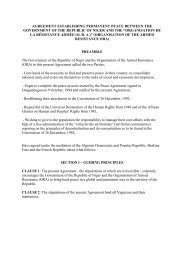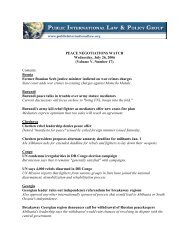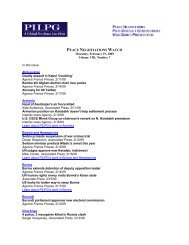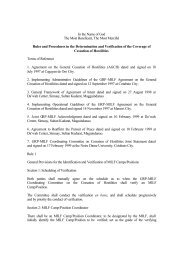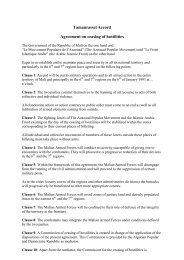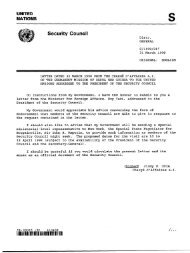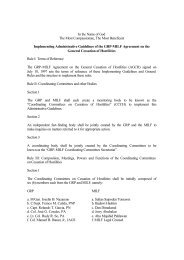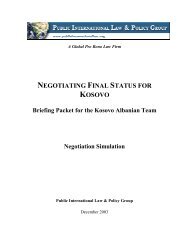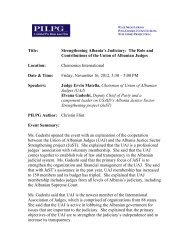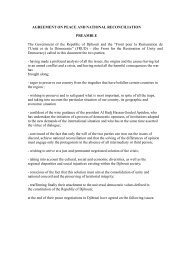Create successful ePaper yourself
Turn your PDF publications into a flip-book with our unique Google optimized e-Paper software.
7<br />
resolution of the crisis Kosovo Serbs would look to the international mission to secure for<br />
them one ministerial post, preferably that of electric power or communications.<br />
The international community, which helped cause the problem by rejecting the Kosovo<br />
Albanian desire to have the post of Kosovo President chosen by direct election, initially<br />
failed to engage effectively to resolve the Kosovo government crisis. Many Kosovo<br />
Albanian leaders complained that diplomatic representatives have sent conflicting signals<br />
about their preferred strategy for resolving the government crisis. Former UNMIK chief<br />
Haekkerup seems to have played no effective role in trying to broker a compromise<br />
before his abrupt departure in January 2002. The U.S. mission in Kosovo, the most<br />
respected international authority in the province, made no secret of its preference for<br />
Rugova and its view that the PDK should be satisfied with the LDK's initial offer of five<br />
ministerial posts under an LDK Prime Minister. The U.S. office met with all of the<br />
Kosovo political leaders and organized meetings of Assembly delegates but did not,<br />
apparently, push a specific solution other than seeking to get the Serbs to vote for<br />
Rugova.<br />
Although the crisis was resolved relatively quickly after the arrival of the energetic and<br />
determined Steiner, it did considerable damage both in and out of Kosovo. The inability<br />
of the Kosovo Albanian leaders to resolve their differences and get on with the manifestly<br />
more important business of beginning to build democratic institutions of self-government<br />
reinforced already strong views among many members of the international community<br />
that Albanians cannot be trusted with governing themselves. This, in turn, could well<br />
increase reluctance among many members of the international mission to begin turning<br />
over the reins of governance to locals and in the longer run further tilt the balance of<br />
opinion against the Kosovo Albanians' preferred option of independence.<br />
Many informed observers of the Kosovo political scene also believe that the government<br />
crisis encouraged disenchantment among the Kosovo Albanian people with all of the<br />
current crop of Albanian leaders. As Blerim Shala, the respected editor of the<br />
independent Pristina daily Zeri told me, the people are fed up with the crisis and "the<br />
three top political leaders are all sinking together." More than 30 percent of the<br />
electorate did not participate in the 2001 elections, a relatively high figure for the<br />
politicized Kosovo environment. If resolution of the crisis is not followed promptly by<br />
the establishment of effective mechanisms of self-government, which begin to take hold<br />
and to accomplish tangible improvements in the daily lives of the people, alienation from<br />
the political process itself could grow, with unsettling implications for democracy in<br />
Kosovo.<br />
Kosovo Albanians, for their part, once they have finished the process of assigning jobs<br />
and setting up institutions, will almost certainly begin pushing for additional selfgoverning<br />
authority beyond that allowed by the relatively restrictive Constitutional<br />
Framework promulgated by Haekkerup in May 2001. A certain amount of bumping and<br />
elbowing between the international mission and the Kosovo leaders on this point is<br />
inevitable in the coming months. Whether it becomes worse will depend on the political



